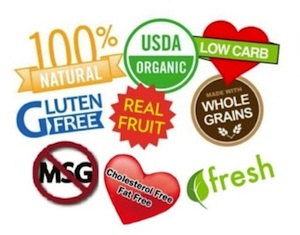Choosing your words in food marketing
Published July 29, 2014 at 8:32 am

When it comes to developing marketing materials, the words you choose have a significant influence on customer buying decisions. But not all companies use words that accurately describe their products. Despite this, many consumers elect to purchase these products anyway.
As consumers have shown increasing demand for products that are natural or organic, many larger companies have purchased smaller ones that create these products, in order to secure their share of this expanding market. However, some companies have changed the ingredients in these natural products, while retaining the “natural” label.
A recent Salon article discusses this trend, and the role that marketing plays in the desire by companies to continue labeling products as “natural” even when their ingredients have changed. Although “natural” is not defined by the FDA, the use of the term can be misleading to customers who are not paying close attention to ingredients.
Such terms can, however, be useful for marketing purposes. According to an article in the Washington Post, words and phrases like “natural” and “organic” helped generate over $377 billion in sales for the food industry over the past year. The word “natural” is responsible for $41 billion of those sales.
While this example highlights the importance of consumer awareness, it carries a message that is relevant for marketers too. Certain words might appeal to some customers, but ultimately, being deceitful in your marketing has the potential to damage your brand and its reputation.
As your marketing team works to develop brand loyalty, packaging and messaging in your campaign marketing will undoubtedly influence customer purchasing decisions. Choose descriptions wisely to ensure you are getting the right message across, while maintaining integrity.







comment closed